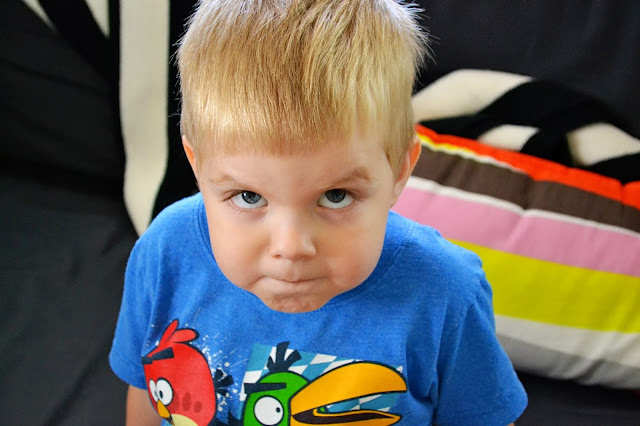I think that sometimes it’s simply exhausting trying
to figure out how to be the best parent we can be.
Seriously, how do we find the happy medium in parenting? First, I think as parents we need to relax a little
and realize that some parenting styles
can be used for different circumstances and that not one
mold fits all kids! However, I do agree
that certain parenting styles can contribute to a more happy,
peaceful and balanced life. According to
Baumrind, there are three types of parenting styles that can affect children differently. The three types are:
·
Authoritative (Oh and right up front, this is the best way
to parent!)
a. Directs
in a rational manner.
b. Encourages
verbal give and take.
c. Shares
with the child the reasoning behind parental policy.
d. Showing
warmth and responsiveness by being attuned and supportive to children’s special
needs and demands.
e. Invites
rather than makes children adopt the parent’s perspective.
f. Be
clear. Establish family rules and
provide friendly reminders. Children need structure and direction. Limits give them a sense of security and serve
to provide order.
g. Be
positive. Many situations can be solved
by simply redirecting children’s attention to something else. Give your child a
choice of two acceptable alternatives.
Listen actively, reinforce positively, and use humor. Emphasizing the dos
rather than the don’ts has great payoffs for the children and sets a better
climate in the home.
h. Be
firm. Children will respond more quickly
when they know their parent is likely to follow through. Use natural or logical
consequences.
When you parent with an
authoritative style, children tend to do very well in all aspects of life: socially mature, high
self-esteem, responsible, more pro-social, high academic achievement, and very
little problem behavior. In other words, authoritative parenting style is the
best way to go!
·
Authoritarian (Coercive)
a. Very
demanding and directive but not responsive.
b. Punitive,
forceful measures (coercion) to curb self-will.
c. Keeps
the child in a subordinate role.
d. Restricts
the child from making choices.
e. Does
not encourage verbal give-and-take.
“Because I said so!” attitude.
When you parent with an authoritarian style,
children tend to perform only moderately at school and avoid problem behavior,
but have poorer social skills, lower self-esteem, and higher levels of
depression.
·
Permissive Parenting
a. More
responsive than demanding.
b. Affirming
and accepting of child’s impulses and behaviors. Does not require mature behavior.
c. Allows
the child to be free from restraint.
Offering freedom as a way of evading parental responsibility.
d. Exerts
lax or inconsistent control when the child misbehaves. Avoids confrontation.
When you parent with a permissive style, children
are more likely to be involved in problem behavior, impulse control problems,
difficulty respecting others, coping with frustration, perform less well in
school, little self –discipline, though they do not tend to have social skill,
self-esteem, or depression difficulties.
When I first learned about these different parenting
styles, I realized that I had incorporated all three of these styles during my
years as a parent. To tell you the
truth, I felt horrible! But from that
point on, I also desired to better myself as a parent knowing how precious
children are and how short life is “to get it right!” I hope that by knowing each of these parenting styles and their outcomes, you can make better choices in raising your children. I also want to acknowledge that the information I received for this particular blog came from my handy class notes I saved from my Parenting 240 class.
I want to leave you with a quote that I
think sums it all up:
“Of all the joys of life, none other equals that of
happy parenthood. Of all the
responsibilities with which we struggle, none other is so serious. To rear children in an atmosphere of love,
security, and faith is the most rewarding of all challenges. The good result from such effort becomes
life’s most satisfying compensation.”
Gordon B. Hinckley
NEXT WEEK: Families and the Negative Impact of Bullying


.jpg)




